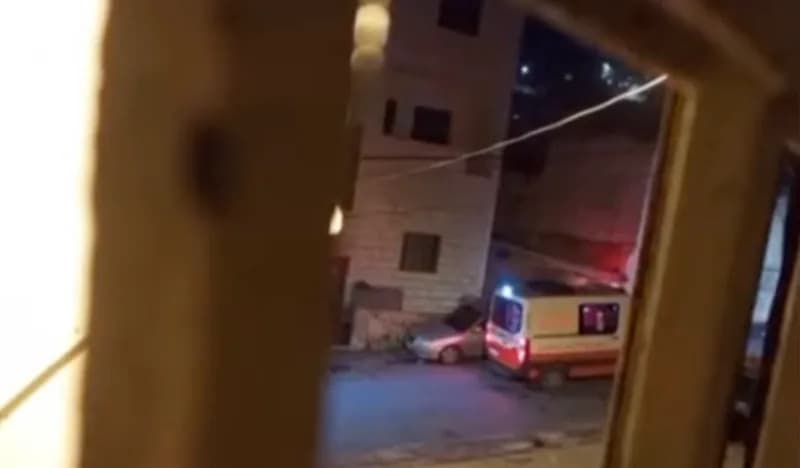Human Rights Watch says Israeli forces expelled about 32,000 Palestinians from Jenin, Tulkarem and Nur Shams refugee camps in January–February, based on a 105-page report using interviews, satellite imagery and documentary evidence. The report documents more than 850 damaged or destroyed homes, limited returns for displaced residents and little humanitarian assistance. Israel says the operations were part of a security campaign called "Operation Iron Wall" and were lawful; HRW calls for investigations into senior officials and potential prosecutions.
HRW Says January–February Expulsions of 32,000 Palestinians from West Bank Camps May Amount to War Crimes

Human Rights Watch (HRW) alleges that Israeli forces forcibly removed roughly 32,000 Palestinians from three West Bank refugee camps — Jenin, Tulkarem and Nur Shams — during January and February, actions the rights group says may amount to war crimes and crimes against humanity.
The findings appear in a 105-page HRW report based on field interviews, satellite imagery, Israeli military demolition orders and verified video and photographic material. Investigators interviewed 31 displaced residents from the three camps and documented extensive damage and a pattern of expulsions carried out while international attention was focused on the war in Gaza.
What HRW documented
HRW reports that Israeli forces entered Jenin on January 21 using Apache helicopters, drones, bulldozers and armoured vehicles, and carried out similar operations in Tulkarem on January 27 and Nur Shams on February 9. Satellite analysis conducted six months after the operations found more than 850 homes and other structures across the three camps had been damaged or destroyed.
"Israeli soldiers were yelling and throwing things everywhere…. It was like a movie scene – some had masks and they were carrying all kinds of weapons," a 54-year-old woman told HRW, describing the raid.
The report says many displaced people were denied permission to return. Some who attempted to re-enter were shot at, and only a small number were briefly allowed to collect belongings. HRW further found that no systematic shelter or humanitarian assistance was provided by the military; displaced families instead sought shelter with relatives, friends, mosques and local charities.
Legal and historical context
The camps were established in the early 1950s by the UN Relief and Works Agency for Palestine Refugees in the Near East (UNRWA) to house Palestinians displaced during the 1948 war, and refugees and their descendants have lived in those communities for decades. HRW says the expulsions occurred without regard for international legal protections and calls the scale and character of the removals — including forcible displacement and destruction of civilian property — grounds for investigation as possible war crimes, crimes against humanity and acts of ethnic cleansing.
Israeli military response
The Israel Defense Forces (IDF) said the operations formed part of "Operation Iron Wall," launched to address security threats and the growing presence of armed militants in the camps. The IDF stated that some buildings were demolished to create access routes, that demolitions were carried out after considering alternatives, and that operations were conducted lawfully and proportionately. The military also asserted that "terrorism in Judea and Samaria has decreased by 70%" since the operation began.
Accountability and next steps
HRW is calling for investigations of senior officials it says bore responsibility for the expulsions, naming Prime Minister Benjamin Netanyahu, Finance Minister Bezalel Smotrich and Maj. Gen. Avi Bluth, who oversees West Bank military operations. The organization urges that anyone found responsible be investigated and, where appropriate, prosecuted under international law.
The report places the expulsions in the broader context of intensified Israeli operations across the West Bank since October 7, 2023, including raids against suspected militants, tighter movement restrictions, and increased settler violence and land seizures. Israeli settlements in the West Bank are widely regarded as illegal under international law.
The HRW report highlights an urgent humanitarian and legal question: whether these operations, carried out while global attention was focused elsewhere, meet the threshold for international investigation and prosecution.
Help us improve.




























